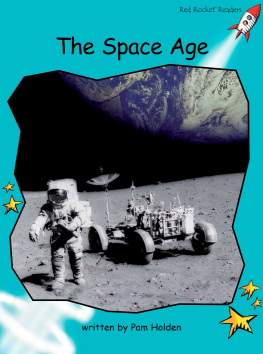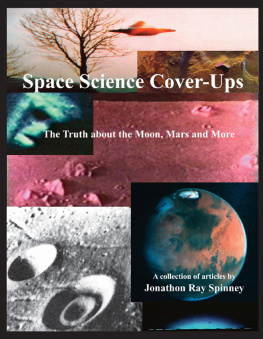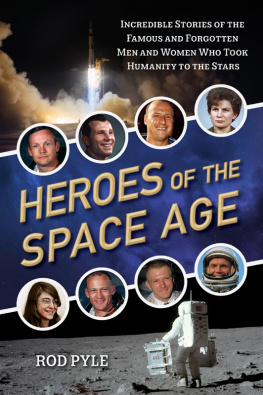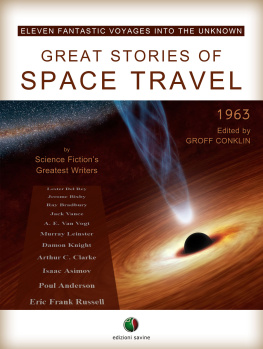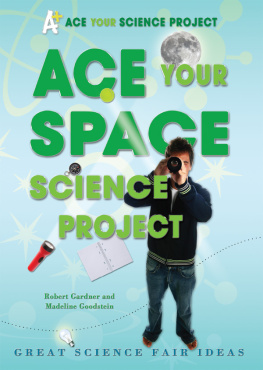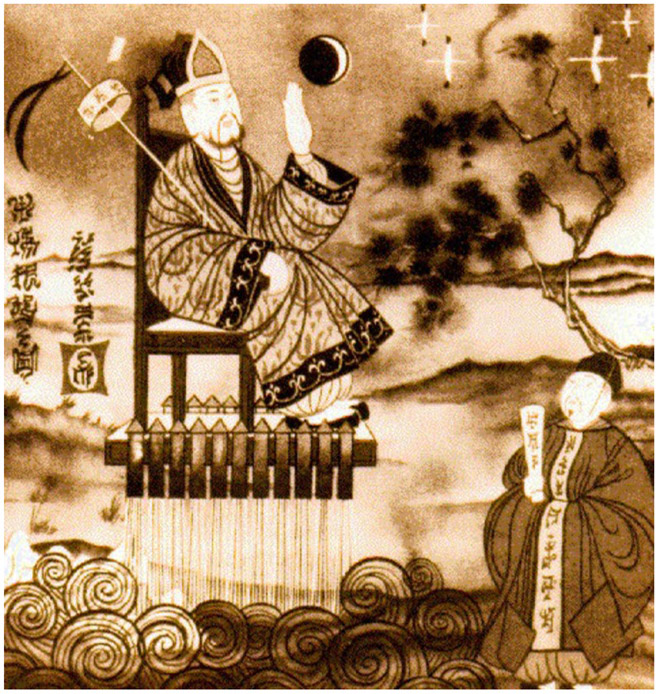Joe Cuhaj grew up in New Jersey as a space fanatic. He would skip school to watch every launch and recovery from the late Mercury missions to the final Skylab mission, all while building and flying model rockets. Cuhaj is a navy veteran and former radio broadcaster turned author and freelance writer. He began his radio career just outside of New York City but moved to Mobile, Alabama, in 1981 with his wife, who is from the Port City. During this time, Joe worked in various positions including news director/reporter, where he applied to take part in NASAs Journalist in Space program, but he never heard back.
He is the author of nine books, including Hiking Waterfalls Alabama, Baseball in Mobile, and Hidden History of Mobile.
I cannot possibly thank all of those who kindly gave their time and knowledge to this project. Just know that I am very grateful. I do need to send special thanks to Jake Bonar with Prometheus Books for his belief in this book and for going to bat for me to make it happen. Thanks also to acting NASA Chief Historian Brian C. Odum and NASA HQ History Program Senior Archivist Colin A. Fries. Your insights into many of the stories included in these pages were invaluable. Thank you to two of my best friends, Debbi OConnor and Jay Karpowich for their input and enthusiasm when I started writing this book. You got me off on the right foot. And to the best proofreader in the world, my wife, Maggie, who waded through the pages during its roughest moments and put up with hours and hours of my chatter when I discovered new tales to tell and couldnt stop talking about them. Thank you!
A s you would expect, the early days of rocketry and spaceflight were fraught with setbacks, disappointments, and fatalities. Although there are many accounts of rocketlike devices being built throughout ancient history (mostly by accident), it is safe to say that the Chinese were the first to put gunpowder to use as an early form of rocket propellant. The first documented rocket is believed to have been the Chinese fire arrow, which was basically a bamboo tube loaded with a mixture of saltpeter, charcoal, and sulfur that was then attached to an arrow. The archer placed the arrow on his bow, lit the mixture, and let it fly in the hopes of vanquishing his rivals during battle.
The first recorded use of the fire arrow was found in the document Wu-Ching Tsung-Yao by Tseng Kung-Liang in 1050 AD. It wasnt long after the Kung-Liang document appeared that warriors realized that the bow was not needed to launch their arrows. They could simply ignite the arrow and it would fly on its own. Today, we would call these bottle rockets, albeit on a much smaller scale. No matter what you call it, the first rocket was born.
The innovation of fire arrows led to a legend that has withstood the test of time and one that labeled a local Chinese government official and stargazer, Wan Hu, as the worlds first astronaut.
The legend of Wan Hu dates to around 1500 AD during the Ming dynasty. Wan Hu was obsessed with the stars and dreamed of one day traveling to them. He envisioned using the fire arrow to propel himself into the heavens but realized that a single fire arrow alone would not be able to lift a heavy man. He deduced that if he strung several fire arrows together, they just might create enough force to lift him off the ground.
Wan Hu attempts to become the first astronaut around 1500 AD. Illustration courtesy of United States Civil Air Patrol, public domain, via Wikimedia Commons
Wan Hus half-baked scheme involved hauling out his ornate bamboo throne, affixing two kites to it (apparently for aerodynamic stability), and encircling the chair with forty-seven of the largest fire arrows he could find. Dressed in his finest imperial robes, Wan Hu sat down in the chair and ordered forty-seven of his servants, each armed with a flaming torch, to light the arrows.
The servants stepped forward and ignited the arrows. An enormous and deafening explosion rocked the area, and a mighty cloud of smoke enveloped the launch site. When the smoke had cleared, Wan Hu and the chair were gone. Wan Hu had disappeared, leaving onlookers to believe that he actually had been hurled into space, which would have made him the worlds first astronaut.
Thats not quite how the story really ended. In an episode of the Discovery Channels show Mythbusters, hosts Adam Savage and Jamie Hyneman re-created the Wan Hu spacecraft with their crash-test dummy Buster playing the role of Wan Hu. The nasty explosion resulted in extensive damage to Buster and what would be fatal burns for a real human. Even though the legend could be disproven easily, a crater on the far side of the moon was named in honor of this rocket daredevil in 1970.
Legends aside, early visionaries, scientists, and dreamers recognized that flight to the stars would require some sort of rocket power. Prior to 1930, there had been many experiments in rocketry using various combinations of chemicals and gases as fuel, which resulted in varying degrees of success. These early rockets were all unmanned. No one had ever attempted to ride one. Enter Max Valier (pronounced Val-yay).
Valier was born in Bozen, Austria-Hungary (now the town of Bolzano, Italy), on February 9, 1895. At the age of thirteen, Valiers father died, and the young man and his mother moved in with his grandparents. It was here that the inquisitive young man discovered two old telescopes that his grandfather had received as collateral for an unpaid loan he had granted. Valier took it upon himself to rebuild the telescopes, and his love of astronomy began.
Valier attended college at the University of Innsbruck, where he majored in math, physics, and astronomy and minored in meteorology. It quickly became obvious that Valier was more of a showman and promoter than scientist. His head was literally in the heavens as he dreamed of traveling to the stars, and he began a journey that later earned him the moniker of rocketrys chief cheerleader.
The public experiments and presentations that Valier conducted were literal flights of fancy. In 1914, for instance, the townspeople of Innsbruck were frightened when they spotted a blazing comet overhead that appeared to be heading straight for the city. It turned out that the comet was actually one of Max Valiers experiments. A report in the Tiroler Nachtrichten newspaper documented the incident.
[Valier] constructed a kite out of impregnated paper, a kind of glider, to which he had attached a system of three fireworks instead of a tail, in such a form that one rocket lit the second and then the third before it burned to the end. Start: Hotel Mariabrunn on the Himgerburg. The kite landed in Pradl.... No one could argue quite seriously that Max Valier is [not], in fact, the inventor of the jet aeroplane.
Valiers family convinced local police not to arrest the young man and to keep the incident quiet so he could continue his studies.
The advent of World War I saw Valier join the military, and his meteorology degree landed him at a weather station on the front. During this time, Valier survived the crash of both a weather balloon and a plane. He also earned the distinguished Austrian Silver Star after taking out a machine that was used by the enemy to spew mustard gas, which saved the lives of countless soldiers.
Following the war, Valier married a divorce, Hedwig Alden, and returned to college, studying in Vienna and Munich, but he never completed his advanced degree. Still, he was enthralled with the possibilities of rocketry and became more interested in writing and popularizing those possibilities by painting incredible images through his words of futuristic innovations than in completing his studies.



